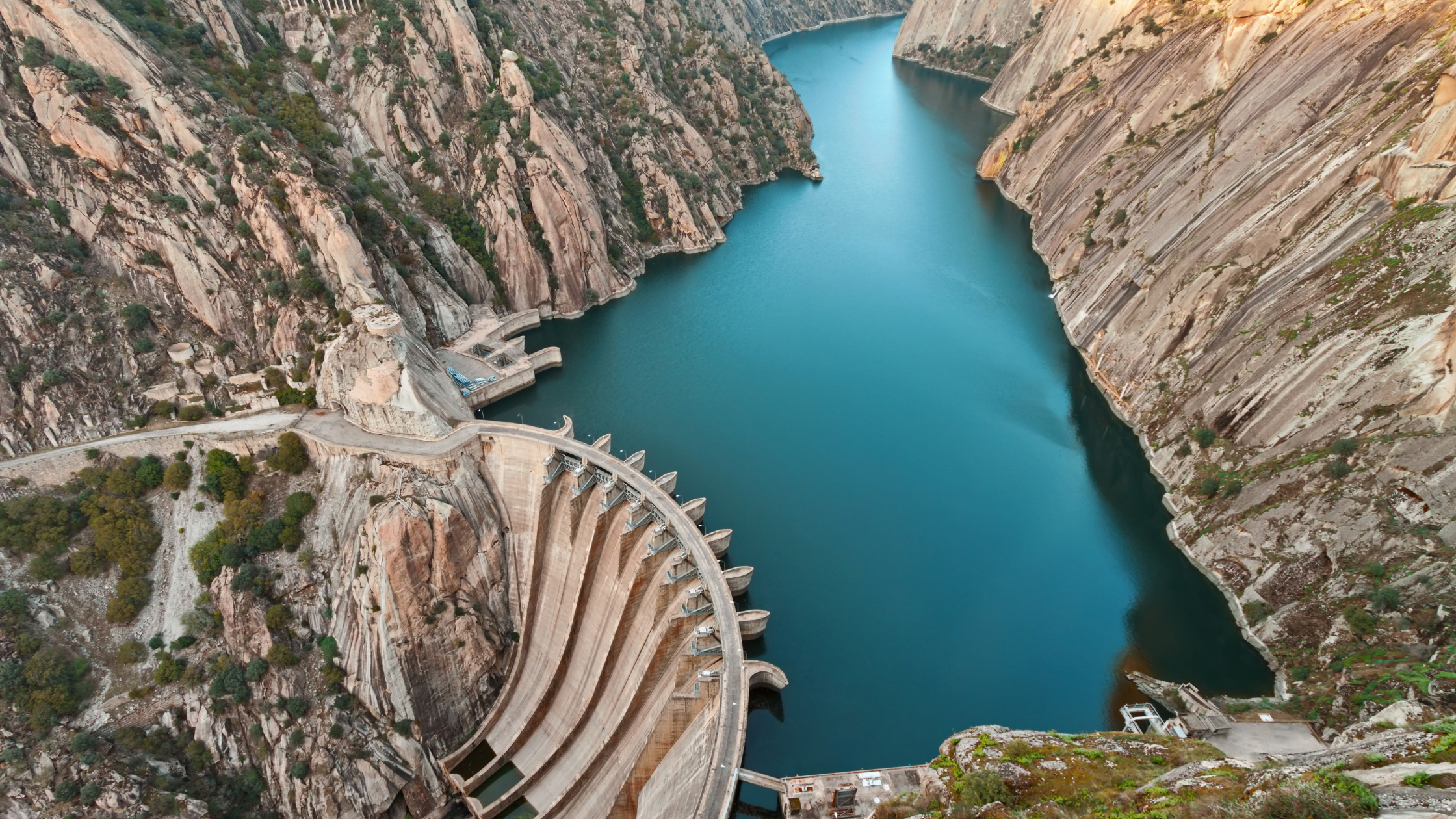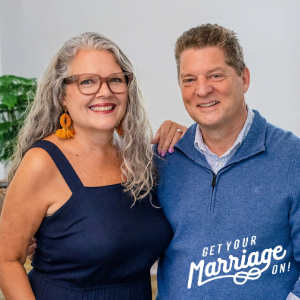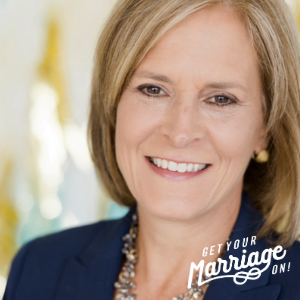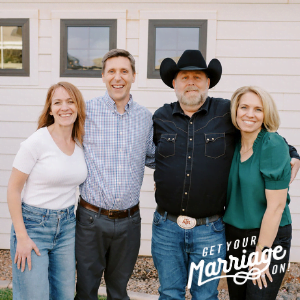Have you and your spouse ever had a time when you felt divided? And you don’t even really know how it all started? You think, we’re fighting, but why are we fighting? What are we even fighting about? And things tend to spiral and get worse and worse. And you realize that you need to snap out of it. I went through something similar like that this past summer.
We had just come off the tail end of a very wonderful family vacation, but we were both so tired. I was tired. I had work to deal with, church responsibilities, and family and everything else kind of all at once. And as a result, I wasn’t sleeping very well, exercising, eating, and doing the regular things that I do to take care of myself, and my relationship suffered. So, today I want to talk to you about the importance of self care for marriage care.
Where I live in St. George, we have reservoirs. We’re in the middle of the desert and we’re going through a drought this year, where the water levels are sometimes a lot lower than they normally are. We have these series of reservoirs around us, and I’ve been thinking how much our relationships are like reservoirs. And that’s what I want to talk to you about today.

In a sense, we all have a limited amount of emotional energy. Think about a reservoir: it’s either really full or really empty. And when it’s empty, it’s like that gross, yucky, muddy stuff, all that sediment that kind of settles in the bottom, that kind of stinks. And it’s the black yucky mud that really sticks to your shoes. That stuff. Or it can be really filled and the water on the top, that’s the clearer water. It’s the clean water. Because all the sediment has settled out of it. Every person has a reservoir. You have a reservoir, your spouse has a reservoir. And not only that, your relationship that you share with your spouse also has a reservoir. So if you can picture in your mind a reservoir for you and a reservoir for your spouse, and then a third reservoir that you both share. And when you contribute to your relationship, are you sharing the clean water that’s coming off the top or are you sharing the mud? The gunk, the stinky stuff? Is that what you’re sucking up and contributing to your relationship?
Now, if you think about your emotional energy as a reservoir, I like this metaphor because it makes sense in many ways. First of all, every day we just have a limited supply of emotional energy and there are things that we do everyday that are a big drain to us. And there are things that we do everyday that actually fill our reservoir.
Examples of drains can be, and not all drains are bad, they just drain our emotional energy. Such as taking care of the kids, our work, paying the bills, health issues, social media or whatever it might be. There are many things that can drain us.
There are two types of drains. We have drains that I guess you can say are solvable drains, drains that you can probably patch, that kind of leak out our energy. And then you have drains that are not solvable. I’m willing to venture that most drains fall into the not solvable category, but having the wisdom to discern like, this is a drain for me, I recognize this is a solvable drain for me, so I’m going to do things to kind of fix it. And an example of a fixable drain could be if you notice that spending a lot of time on social media, for instance, you are worse off after, then you can learn how to set limits or boundaries on how much social media you’ll engage in so that you can keep your reservoir from draining so fast if that is a drain for you.

We also have ways to fill our reservoir. And one thing I want you to know is that you’re the only person that can fill your reservoir. People can’t fill your reservoir for you. It has to be something only you can do. Sometimes, mistakenly, we look to our spouse or other things to fill our reservoir for us, to kind of fill us up. That can create situations of codependency because they’re looking to another person to fill something up that only you can actually take care of. Otherwise, if you keep looking to someone else to fill that reservoir it’ll be like this leaky bucket that will never get filled instead of learning how to fill it for yourself.
Anyway, if you have a moment, you can pause this and take a moment to think, what things fill your reservoir? What things fill you up? What things give you a boost of your emotional energy? Here’s a few examples that I came up with. Good food or nutrition, sleep, exercise, sunshine, talking with friends, service, hobbies, going for a walk, or work, if you’re lucky. Lucky people find work that’s really satisfying and can sometimes be a drain, but also can really fill them. Spending time with kids and loved ones can also be a big filler. Anyway, once you kind of have a really good idea of what fills your reservoir, what you want to do every day is make sure you’re spending time as much as possible doing those little things that fill your reservoir. According to research, if you had to just pick two things, it would be exercise and service that have been proven as the two things that will fill your reservoir the quickest or most efficiently. Which probably didn’t take a rocket scientist to tell you that, that’s pretty straightforward.
I love this idea of also at the same time working on what your drains are that are solvable, so that you can be optimal. And the reason why all of this is so important that you’re filling your reservoir and taking care of your drains, is you want to be giving the good water in your reservoir to your relationship reservoir. Now, remember how I said you have a reservoir, your spouse has a reservoir and I want you to picture that there’s this third reservoir that you both share that represents a relationship reservoir. Now if you’re really low, if you’re sucking in mud and you’re giving the sludge and that’s what’s going into your relationship reservoir, you’re going to find a lot of contention, a lot of headbutting in that relationship. That’s not at all where you want to be.
Or if your spouse is just giving mud into that relationship, that’s not going to be fun either. So you want to make sure that you’re taking care of yourself first because no one can fill that reservoir except for yourself.

When it comes down to taking good care of your relationship reservoir and what you contribute, I want you to think about these things into two broad categories. We’ll call one thing deposits, and the other thing we’ll call fillers. Deposits are things that you would think traditionally as the five love languages.
These are things that you can do that mean a lot to your spouse, that don’t necessarily mean a lot to yourself, but you do it for them because you love them and it helps them out. It’s good for your relationship. This can be things like doing a chore for them, like the dishes, or buying their favorite drink, or surprising them with some sort of a gift that they really like.
It could be sending a text message saying, I love you. It could be offering to give them a hug or a foot rub after a long day. It could be filling the tub. It could be taking care of the kids and giving them a break. It could be playing a game that they like to play, that you don’t necessarily enjoy playing, but you’ll do it with them because you care about them and you care about that relationship. These are all really good things. And think of these as things that you’re giving out of your reservoir and pouring into your relationship reservoir to keep that relationship reservoir filled with good clean water at the top.
I mentioned there are two categories, deposits and fillers. Fillers are things that are mutually enjoyable. These are things that you both enjoy that fill your reservoir. This could be really good sex. This could be going on a walk together, something you both enjoy that fills that reservoir. It could be just talking and laughing. It could be watching your favorite TV show together. It could be going on a date. All of those things that you both enjoy, and they don’t have to be big grandiose things, are really good at taking care of that relationship reservoir and filling it together.

So I have a 3, 2, 1 rule for happy relationships, and this is how it works. Every day, I want you to do three personal reservoir fillers, pick three things that you can do today that will fill your own reservoir. Because remember, if you don’t fill your own reservoir, you’re just going to be sucking mud and giving gross mud and sludge to your relationship. So you want to fill your reservoir with things that fill you. So pick three things every day.
The two is, pick two things every day that are a deposit into your relationship reservoir. And these are things that will matter to your spouse, that you can do for them. Think traditional five love languages type of things that mean a lot to your spouse.
And one. Do one relationship filler every day. One thing that you both enjoy together.
So again, that 3, 2, 1 rule- three personal fillers every day, two deposits into the relationship reservoir and one relationship filler, something that you both enjoy everyday.
So we’ve talked about reservoirs. We’ve talked about how we have a limited amount of emotional energy every day and how to prioritize your self care, not for selfish reasons, but this is so that you can contribute your best. You can’t draw water from an empty well, you can’t lift someone up onto higher ground if you’re not on that higher ground yourself first. So, taking care of yourself is the first step to taking better care of your relationship.
Now, I just want to conclude by also talking about something else that’s been on my mind. And that’s how important it is that we watch our self-talk. The way we talk to ourselves really matters. If you pay attention, how do you talk to yourself? Do you always talk down to yourself? Are you always self-criticizing? Are you always telling yourself how stupid you are or telling yourself how awful you are at certain things? Or do you talk kindly to yourself with compassion? The way we talk to ourselves matters a tremendous amount, because the way we watch ourselves affects the way we talk to others. It affects our speech. It affects our behavior and it affects our actions.
Another tip I have is to focus on the present. When we’re very outcome focused or outcome oriented, we think too much about the future and fear and anxiety always live in the future. When we’re always thinking of what can be or what might happen, these are always future events, and those are often where fear and anxiety lie. And instead, if we can train our minds to focus on the present and right now, what’s the one thing I need to do right now, or what’s important right now in this moment or today?

And let the future things worry about itself. I think that helps in our relationships because we’re going to be more grounded, be more in the moment, and be able to care, specifically for our spouse and ourselves, and in that relationship reservoir. What needs to be done right now? We are more task at hand oriented.
It also keeps us humble. The third related thought to this is we need to watch out for doubt. When doubt creeps into our mind, it’s like a weed that can take over your lawn. Doubt affects other parts of us. And if we’re not careful, that doubt leads us to inaction. A lot of people don’t take action to improve their relationship or to make the relationship a priority, because they’ve let doubt set in. They doubt that their spouse will ever want them, or they doubt that anything they do will actually help the relationship. So doubt is really pernicious. It’s like a really toxic weed that we need to get out of ourselves and out of our minds. And instead, replace it with faith and hope.
Our mind can only occupy one idea at a time. So if you can fill it with not just positive energy, but faith and action, that action every day is going to get you closer to the kind of relationship that you want to have, or the kind of relationship you want to preserve.
A big shout out to Dr. Denham Slade, who’s helped me with a lot of these concepts and using the metaphor about the reservoir and sucking mud. Anyway, I hope to have him on as a guest on the podcast sometime.
Thank you very much for listening. I hope this has been really helpful. And now go fill your reservoir and you and your spouse’s shared relationship reservoir and have a fantastic week, talk to you next week!





